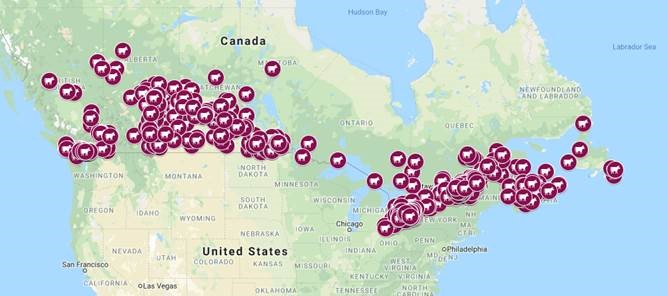With record low unemployment rates, labour shortages are being widely felt across Canada, impacting businesses in multiple sectors and escalating competition for workers. Programming designed to attract workers to a specific industry unrelated to tourism may appear to offer solutions only to other employers, but details within these programs can also benefit tourism businesses desperate for staff.
While designed to address labour shortages in agriculture and agri-food businesses, the recently announced three-year federal Agri-Food Immigration Pilot Program is expected to attract close to 16,000 applicants—and their families.
Much like tourism, food processing businesses are located right across Canada, in urban and rural locations. Much like tourism, Food Processing Skills Canada reports that these businesses are having difficulty attracting and retaining staff, particularly in smaller or rural communities. So when a processor in Kings County, Nova Scotia, or Levis, Quebec, or Brooks, Alberta, is able to employ a newcomer to Canada and offer them a pathway to permanent residency, the hotel, restaurant, or attraction down the road is afforded a chance to connect with a spouse or teenage dependant seeking work opportunities.

Newcomers are much more likely to stay in a community where they are able to quickly and easily establish ties and feel welcomed and supported by locals. To secure new staff, tourism employers may wish to collaborate on a cross-sectoral attraction and retention plan, whether this is by one employer reaching out to another or by building a wider, community-based initiative. All parties stand to benefit from a collaborative effort across businesses:
- Multiple employers attract much-needed staff
- The family settles in more quickly and gains additional financial and community support
- The local tourism sector gains cross-cultural knowledge and possibly new language skills
- The community is more likely to see the family establish roots, rather than losing them to a large urban centre
- Employers are more likely to retain the workers over the long-term
- The newcomers may encourage extended family and friends struggling to settle elsewhere to consider moving to the community, thus attracting additional labour
Looking to connect? The Canadian Food Inspection Agency has a list of federally registered meat establishments and their licensed operators.
Tourism employers may also want to explore other recently announced pilots that provide workers with the opportunity to bring their family members, such as the Home Child Care Provider Pilot and the Home Support Worker Pilot.

